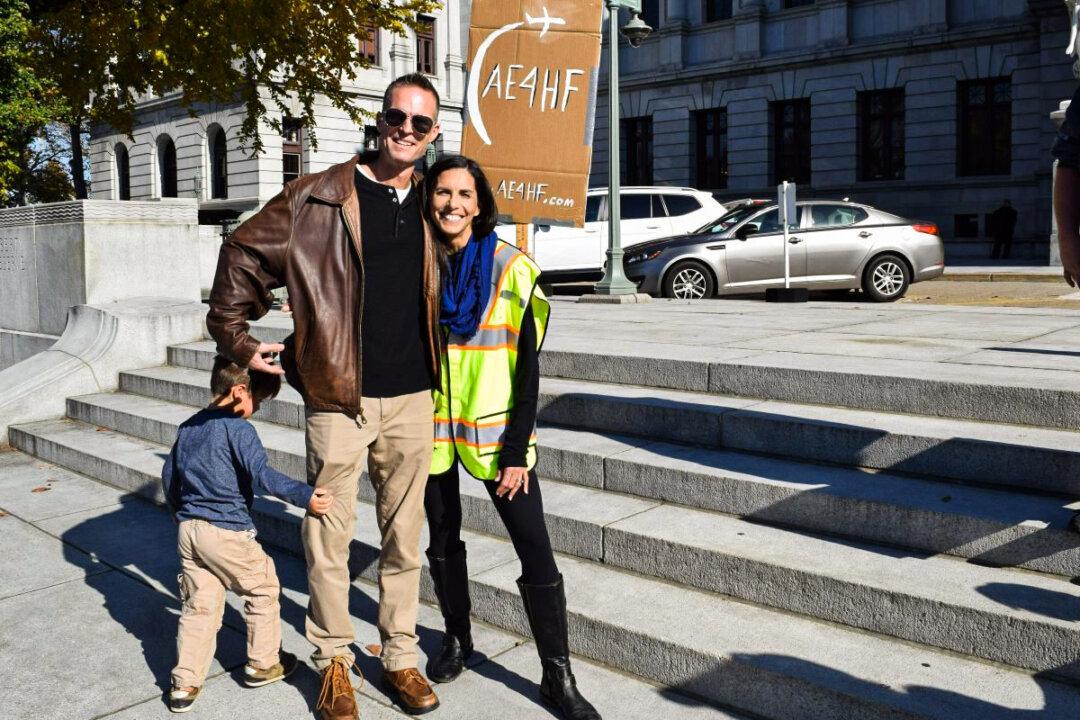Diversity, equity, inclusion: this has been the mantra of United Airlines. United pilots Stephanie and Kyle Atteberry thought the company meant it.
“United has been great to us,” Kyle told The Epoch Times. He recalls receiving blankets from the company as gifts when each of their six children was born. “Our expectations were, United would honor our faith.”





